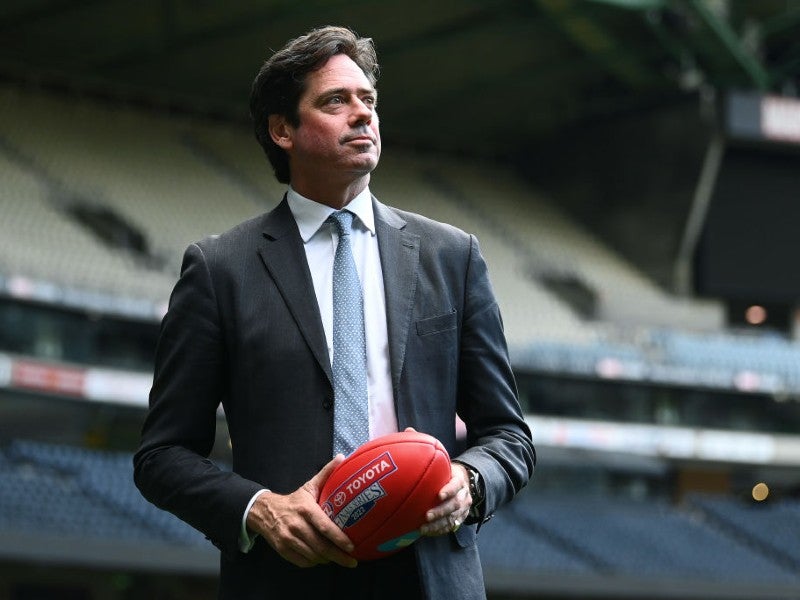
Gillon McLachlan, the outgoing chief executive of Australian rules football’s AFL, has confirmed he will leave his role with the league in April 2023.
McLachlan will officially depart following round five of the 2023 season which will be held from April 13-16.
He discussed the timing of his exit with AFL commission chairman Richard Goyder and agreed the competition’s round in Adelaide in mid-April next year was an “appropriate” time to step down.
McLachlan announced his resignation in April this year and initially planned to leave the league by the end of the 2022 season.
However, several issues including the Hawthorn racism investigation, the collective bargaining agreement negotiations, and the proposed 19th license in Tasmania have delayed his departure.
Australian state Tasmania’s bid to establish an expansion team in the AFL took another step forward recently after an in-principle agreement was struck between the state government and the league on commercial terms of the new team.

US Tariffs are shifting - will you react or anticipate?
Don’t let policy changes catch you off guard. Stay proactive with real-time data and expert analysis.
By GlobalDataHaving stayed on, McLachlan was also able to oversee a lucrative media rights extension with pay-television operator Foxtel, commercial broadcaster Seven West Media, and telecoms giant Telstra for another seven seasons.
The deal, worth a total of AUD4.5 billion ($3 billion), is claimed to be the biggest sports broadcast rights deal in Australian history.
The AFL has been conducting a search for McLachlan’s successor and Goyder said that the league had narrowed the field to a shortlist of candidates drawn from inside and outside the AFL industry.
Among the immediately apparent possibilities given are Travis Auld, the league’s current executive general manager for finance, clubs, and broadcast, as well as Western Bulldogs president Kylie Watson-Wheeler and Richmond chief executive Brendon Gale.
The league hopes to select McLachlan's replacement early in 2023. Whoever takes over will be only the AFL’s fourth chief executive in 26 years.
Goyder said: "It is important the AFL has continuity during this period as we continue to work through some incredibly significant and complex pieces of work for the industry.
"As you know, Gillon initially committed to finishing at the end of the year, and I thank him for agreeing to stay in the leadership role for an additional period as we navigate through a critically important time."
McLachlan has spent the vast majority of his career at the AFL.
After a stint at Andersen Consulting (now Accenture), he was enlisted as a strategy consultant to the AFL in 2000.
He was appointed as general manager of commercial operations in 2003, promoted to chief operating officer in 2008, then to deputy chief executive in 2012.
McLachlan became chief executive in 2014 following the resignation of his former boss Andrew Demetriou and will have served for eight full seasons when he vacates the role.
Goyder credited him variously with having expanded the women’s game (the AFL Women’s competition having been launched in 2017 three years ahead of schedule), improved the inclusiveness of the league, and kept it accessible and affordable for fans.
McLachlan also presided over the signing of an AUD2.5 billion six-year domestic rights deal that took effect in 2017, which at that time represented the biggest sports rights deal ever signed in Australia.



